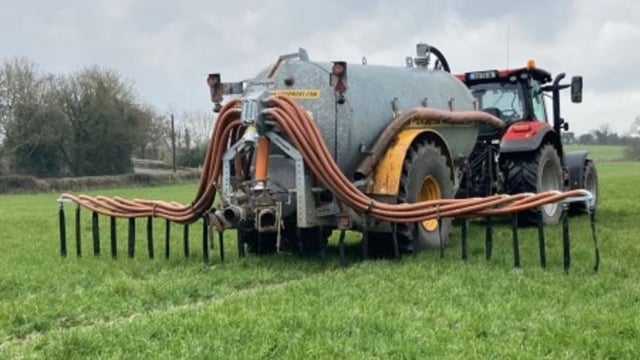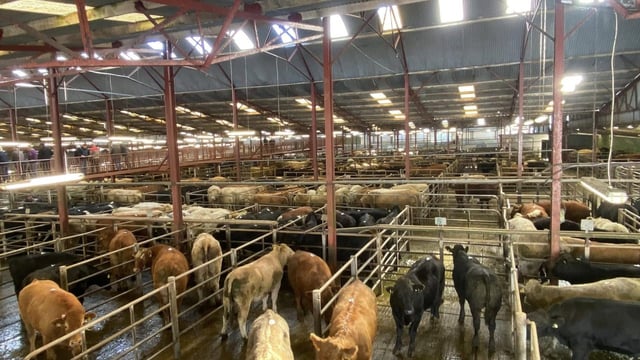CCAC: Not enough action taken after previous storm fallout
The Climate Change Advisory Council (CCAC) has said that there has not yet been enough tangible action undertaken to address the significant shortcomings exposed by Storms Darragh and Éowyn.
It has called on the government to prioritise actions that will have the most impact in advance of the storm season.
Launching its 'Annual Review on Preparing for Ireland's Changing Climate', today (Tuesday, September 30), the council expressed its disappointment that a cross-government review of the response to Storm Éowyn, expected to identify key learnings across all sectors, is overdue and remains unpublished.
The CCAC has urged the government to take action on the delivery of the ‘Emergency Response Hubs’ which assist people with basic needs in the event of services outages.
It also wants to see the permanent establishment of a resourced Extreme Weather Assistance Scheme to support people, businesses and communities.
Acknowledging what is described as the "vital role" that Local Authorities play in both preparing for and responding to severe weather events, the council urged the government to commit to defined annual funding for climate adaptation actions, starting with Budget 2026.
This includes committing to making the Climate Action Regional Office and Local Authority Climate Action staff permanent with appropriate funding that will enable them to assist in targeted, localised climate resilience efforts across Ireland and allow for multi-annual planning.
The CCAC also noted the importance of the forthcoming Sectoral Adaptation Plans, stating that these have the potential to deliver the greatest contribution to national climate resilience.
It said that there is a "critical need for the sectoral plans to have targeted and ambitious actions which are fully funded with clearly defined outcomes, improved indicators and more robust monitoring to be effective in supporting communities".
According to the council, this is particularly pertinent in addressing vulnerabilities within critical infrastructure including electricity, water and communication networks.
Addressing the need for urgent action on adaptation, chair of the CCAC Adaptation Committee, Prof. Peter Thorne said: "With extreme weather events continuing to increase in both magnitude and frequency, communities throughout Ireland must be better protected from their devastating impacts.
"The cascading effects of these storms have exposed our vulnerability and the critical shortcomings in our preparedness and response systems.
“Stronger political leadership with a whole-of-government response to these challenges is essential to achieve the goal of a climate resilient Ireland.
“The publication of Ireland’s first National Climate Change Risk Assessment and the inclusion of climate change adaptation factors in the revised National Planning Framework are positive developments that urgently need to be built on," he added.
The CCAC added that the revised National Development Plan must ensure that national climate priorities are translated into real, tangible resilience projects locally.
“There must also be greater accountability for the delivery of climate adaptation across government," Prof. Thorne added.
"The Department of Climate, Energy and the Environment and the Department of the Taoiseach must work to ensure that the most impactful actions from the Sectoral Adaptation Plans are embedded into the Climate Action Plan 2026, delivering measurable improvements in climate resilience throughout Ireland.”
Biodiversity
The CCAC has said that "biodiverse ecosystems and landscapes remain key to providing greater resilience to climate change and extreme climate events, and to improving water, soil and air quality across ecosystems and landscapes".
It highlighted that agri-environment schemes dominate biodiversity related expenditure in Ireland.
The council recommends enhanced incentives and supports over the long term to ensure the expanded uptake of biodiversity-friendly agricultural practices and sustainable food production systems and to "discourage monocultures in agriculture and forestry systems".
It also suggested that NPWS should establish a climate action unit.
At the local level, it further recommended that local authority biodiversity officers collaborate closely with local authority climate action teams to promote actions that benefit both biodiversity and resilience and avoid duplication of resources.












